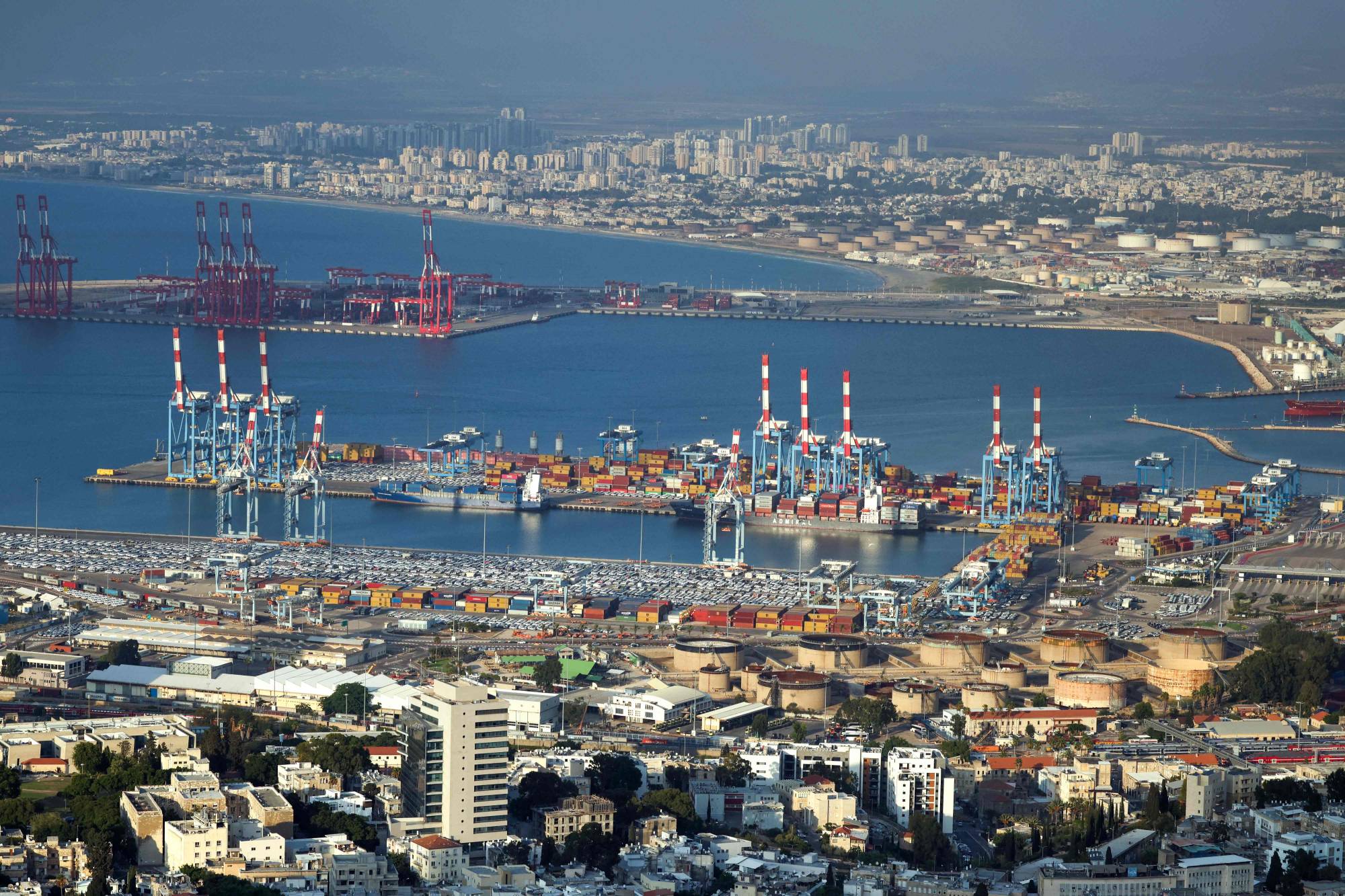SANA'A August 26. 2024 (Saba) - After about 326 days of the Zionist-American aggression on Gaza Strip.. The Zionist economy is still suffering from war severe effects , from deficit, inflation, contraction, recession, capital flight and credit reduction, which are getting worse day after day and month after month.
With the continuation of its military operations and the depletion of its resources of all kinds, the Zionist enemy stands at a critical economic crossroads, the effects of which are clearly evident in the sharp decline in growth, high inflation rates, worsening financial deficit, credit rating downgrades, etc.
Expectations indicate that the financial deficit in the 2024 budget will far exceed previous estimates due to defense spending.. In this context, fears are growing that the war will continue, amid geopolitical tensions and pressures on the Zionist government to deal with the long-term financial and military repercussions.
The Zionist enemy media confirmed on Tuesday, that the Zionist economy shrank by 0.4 percent in the period from April to June, on a per capita basis according to population growth, and business production and exports also declined, according to data from the Central Bureau of Statistics.
Preliminary data issued by the Central Bureau of Statistics last Sunday showed that the Zionist economy grew at a slower pace than experts expected for the second quarter of this year, as the war that has been going on for more than ten months with the Palestinian resistance continues to cause heavy losses in exports and investments.
The chief Zionist economist at the Mizrahi Development Bank, Ronen Menachem, says: "The per capita GDP shrank compared to the previous quarter and compared to the corresponding quarter of last year, a figure that clearly indicates the great damage that the ongoing war is causing to the economy."
Meanwhile, the chief Israeli economist at Leader Capital Markets, Yonatan Katz, confirms that “GDP growth was disappointing in the second quarter due to a contraction in exports (goods and services) and weak investments.”
Katz, who forecasts the economy to grow by 2.3 percent, says that the slower-than-expected growth figures “are mostly due to supply issues: Construction investments remain down 26 percent year-on-year due to a shortage of Palestinian workers.”
He adds that “the closure of businesses in the north and south (agricultural and commercial) is also affecting growth.”
The weak growth figures come on the heels of the downgrading of the Israeli entity’s credit rating from A+ to A last week by Fitch Ratings, which said it expected the war to last until 2025, warning that escalation to multiple fronts could lead to “significant additional military spending, destruction of infrastructure, and more lasting damage to economic activity and investment.”
Fitch was the third global credit agency to lower the credit rating of the Zionist entity this year, after Standard & Poor's and Moody's.
Last July, the Bank of Israel lowered its expectations for economic growth, citing an increased risk of escalation with the Lebanese Hezbollah on the northern border. It expected the economy to grow by 1.5 percent in 2024 and 4.2 percent in 2025. This is lower than the previous growth forecast in April, which amounted to two percent in 2024 and five percent in 2025.
Menachem expected that economic activity would falter in the second half, however, much depends on security developments in the region and on the issue of the severity of the war's impact on the economy. He said: "The economy is operating at full capacity, and the number of job vacancies is increasing, as well as the difficulty of filling jobs with professional workers, which will continue to restrict activity and GDP growth."
Based on official Zionist data, the Zionist newspaper Yedioth Ahronoth revealed an increase in the settlers number leaving the entity abroad in light of the increase in threats, the war continuation on Gaza, the decline in the standard of living, and the worsening the internal division.
According to information that has not been confirmed by the enemy authorities in Tel Aviv, the number of those fleeing the entity has reached one million people since the start of the aggression on Gaza last October.
While statistical reports indicate an exacerbation of reverse migration from Israel after the war outbreak on Gaza, it was noted that movements and associations were announced with the slogan (Let's leave together), which attracted tens of thousands of Zionist settlers.
According to the Zionist media, half a million people left the occupied entity in the first six months of the war, at a time when immigration to it became much less than it was before the war, amounting to about 2,500 immigrants per month.
In February, about 20,000 people left the entity, and in March about 7,000 left, and by adding the arrivals and exits in April to the total number, the gap in favor of the number of exits reached about 550,000 thousand people, according to the Zionist media, which naturally relied on official data from the Zionist government.
In the same context, according to a study issued by the Begin Heritage Center, 59 percent of Zionists in the occupied entity have gone or are thinking of going to foreign embassies to inquire and submit applications to obtain foreign nationalities, while 78 percent of Jewish families expressed support for their young sons to travel abroad.
In a study prepared and published by the Zionist Ministry of Absorption, it became clear that a third of the Jews in the occupying entity now support the idea of immigration, especially after the Battle of (Sword of Jerusalem) in May 2021, a date that was expected in Palestinian and Zionist statistics, that the number of Jews in historical Palestine would have reached, a year before, 6.9 million people, compared to 7.2 million Arabs. According to the figures of the Ministry of Absorption, a total of 720,000 Jewish settlers have left "Israel" and settled abroad since the beginning of 2021, while the same year recorded a superiority in the balance of reverse migration for Jewish immigrants who are basically coming from abroad.
While Tel Aviv Stock Exchange analysts expected the Israeli economy to grow by 5.9 percent in the second quarter of 2024, the same rate expected by Bloomberg, the figures came in lower than expected, recording 1.2 percent.
The figures reflect the failure of the Zionist economic sectors to adapt to the Gaza war consequences , especially construction, agriculture, services and tourism, according to figures revealed by the Israeli Bureau of Statistics this week, amid expectations of more gloom for the rest of the current year 2024.
Fixed asset investments did not witness any growth during the second quarter, while imports, excluding defense, ships, aircraft and diamonds, contracted by 7.3 percent on an annual basis.
According to a report by the American Bloomberg Agency, a large part of the slowdown in fixed investments is due to the stagnation of the construction sector, which relies on Palestinian workers from the occupied West Bank, who have been banned from entering the Zionist entity since the beginning of the war.
The financial deficit of the Zionist budget continued to rise last July, recording 8.1 percent of GDP over the past 12 months.
The financial deficit in the months ending last June was about 7.6 percent of GDP, while the Ministry of Finance expected the deficit to reach 6.6 percent of GDP, or about $34 billion.
These figures indicate that the budget deficit is constantly expanding, making it difficult for Israel to bear the cost of the resulting debts to cover the deficit, especially with the rise in interest rates on both the dollar and the shekel.
The Israeli public debt exceeds more than 67 percent of the gross domestic product, compared to about 63 percent before the war on the Gaza Strip last October. In total, an Israeli economic expert estimated that the war on Gaza has already cost the economy more than $67.3 billion.
While the Bank of Israel (the central bank) sought to reduce inflation close to the target of about three percent, by raising interest rates since the beginning of the second half of 2022, data from last July indicate a return to the rise.
Annual inflation rose to 3.2 percent in July from 2.9 percent in the previous month, the highest reading since November 2023.
The rise was driven by increased price pressures on food, housing, education, culture and entertainment.
At the same time, core inflation rose to 2.9 percent in July from 2.7 percent in June, further complicating the economic situation amid ongoing challenges.
The Zionist entity also witnessed a significant increase in poverty and unemployment rates. The poverty rate rose by 2.6 percentage points to reach 25.3 percent in mid-2024, while the unemployment rate rose by 1.7 percentage points to reach 6.2 percent in July 2024, meaning hundreds of thousands of job opportunities will be lost.
Fitch expects the Israeli government to permanently increase military spending by about 1.5 percent of GDP compared to pre-war levels, which will increase pressure on the budget and debt levels.
As for the long-term economic consequences of the war in the north with Lebanon, any increase in the risk premium will lead to a significant increase in interest payments on the Israeli public debt, which is likely to remain at a level between 1.3 percent and 1.5 percent, compared to the pre-war level of 0.8 percent.
According to the Israeli Institute for National Security Studies, the decline in growth rates in three scenarios (continuation of the current situation, escalation in the north, reaching an agreement based on the proposed deal to release the hostages, and stopping the fighting in Gaza and the withdrawal of the occupation forces from the Strip) along with an increase in security spending, will exacerbate the risk of economic recession, which could cause economic problems reminiscent of the “lost decade” that followed the October 1973 war (when the budget was exhausted and the growth rate in the economy fell by half or more).
Despite the attempts of the economic sectors to coexist with the consequences of Gaza war on the joints of the Zionist economy, most of them failed to do so, with the construction, agriculture, services and tourism sectors at the forefront.
The latest figures issued this week by the Zionist Bureau of Statistics reveal the extent of the great damage caused by the ongoing war on the economy, amid expectations of more gloom for the remainder of the current year 2024. It is worth noting that the Zionist economy continues to drain for nearly 11 months with the continuation of the aggression on Gaza Strip, despite all the unlimited American and European support. The growth indicators, budget deficit and even inflation did not give any indications of the cohesion of economic performance in the midst of a crisis that affected all sectors. According to Zionist observers, it seems that this war of attrition will lead to the collapse of "Israel" and not Hamas.

| more of (Reports) |




